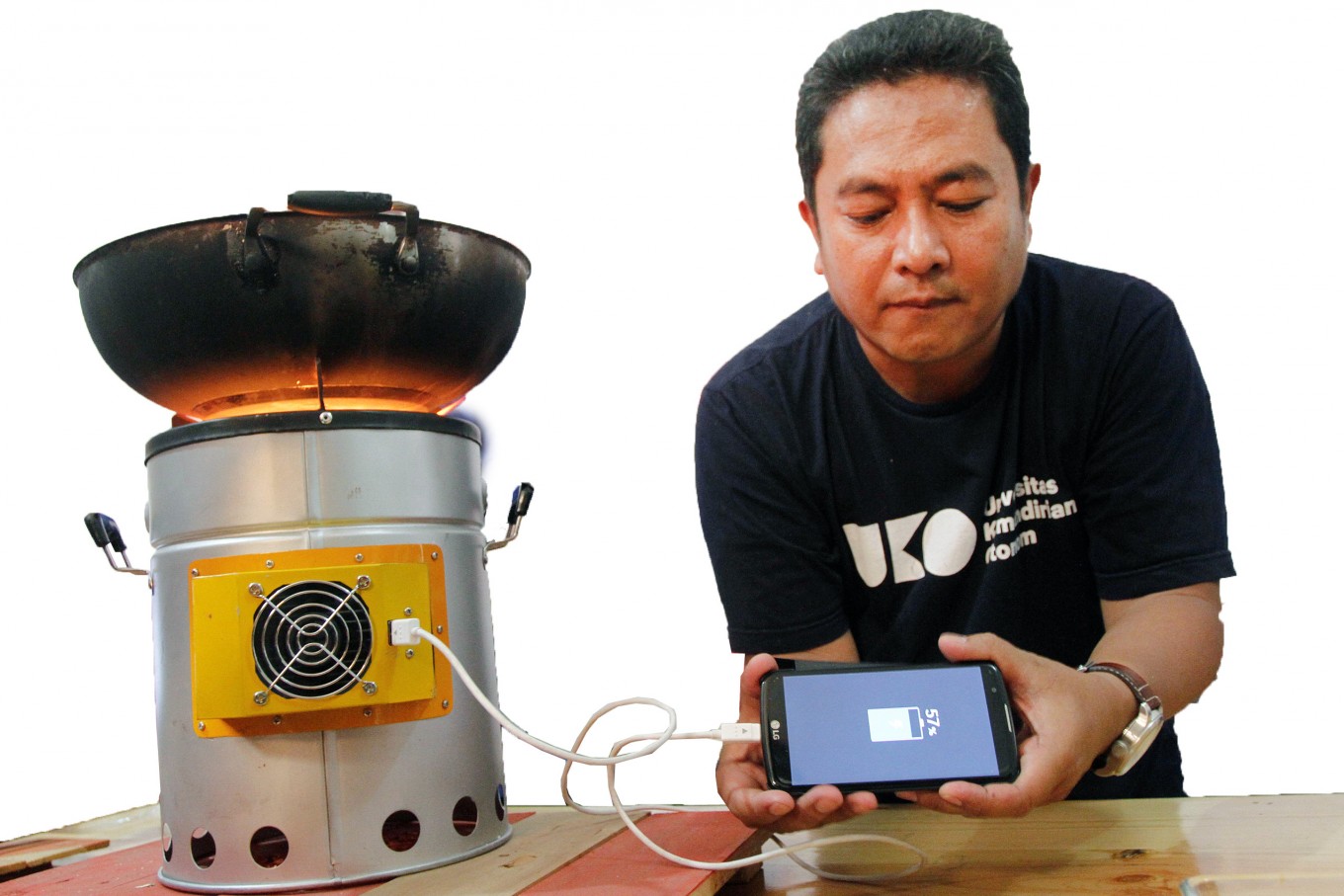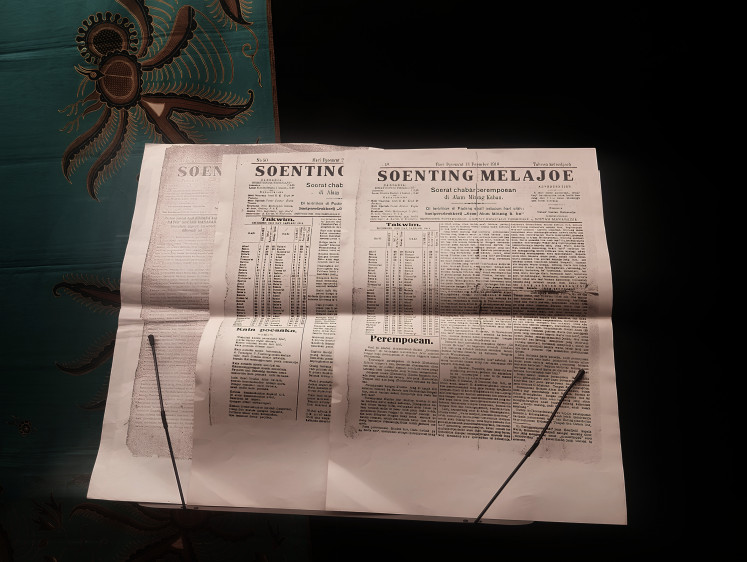Hawuku stove: Energy innovations for people's welfare
While some stoves previously used electricity, this Hawuku stove produces power with trash.
Change text size
Gift Premium Articles
to Anyone
 Smart tech: Ujang Koswara shows a smartphone that is being charged using a Hawuku stove. (JP/Arya Dipa)
Smart tech: Ujang Koswara shows a smartphone that is being charged using a Hawuku stove. (JP/Arya Dipa)
B
rought up in a family with limited resources, Ujang Koswara, 48, a former lecturer at the Swiss Polytechnic Institute of the Bandung Institute of Technology, has been innovating for community welfare. His latest invention is a stove capable of producing electricity.
Ujang has built an energy-saving stove out of used paint cans that utilizes dry trash as fuel. To generate heat, he added a used computer fan of 1.2 watts.
“While some stoves previously used electricity, this Hawuku stove produces power with trash,” he said recently at the Universitas Kehidupan Otonom, an empowerment community in Bandung.
He was inspired by an iron, which uses electricity to generate heat. For his stove, Ujang has reversed this process.
Hawuku means a blower stove in Sundanese. “It’s not an acronym just to make it sound like a Japanese product,” Ujang added with a smile.
He uses metal plates between the fuel stove and the used computer fan.
“The extreme difference in temperature between the two plates produces voltage that is utilized for conversion into electricity,” said Ujang.
The fan also becomes an indicator for power consumption. As soon as it spins, the electrical energy can be utilized. “It can be used to turn on lamps, charge cell phones, or be stored in a battery,” he explained.
Read also: Medals for 2020 Tokyo Olympics to be made of recycled metal
To prove his stove’s capacity, Ujang asked his peers to fill it with scrap wood and paper to start a fire and use it for cooking. After two to three minutes, the blower began to spin. Thereafter, he plugged in a lamp and cell phone cables. They all worked. “The output is 12 volts at 1.5 amperes,” he said.
Born in Cicadas, Bandung, the man plans to hand over the stove to Bukit Barisan Regional Military Commander Maj. Gen. Cucu Somantri. “Hopefully it will be delivered to the Indonesian Military Commander and President Joko “Jokowi” Widodo for further introduction to society,” he said.
He also cooperated with the military when he launched Listrik Mandiri Rakyat (Limar). A self-supporting electricity system in the form of light emitting diode (LED) lamps with motor vehicle battery power for limited-energy illumination. His first Limar lamps used 19 LED lights in a circle. “The 1.5-watt lamps are as bright as 10 watts,” said Ujang.
In creating these lamps, he worked with military men, who are to later give instructions to local communities on how to prepare such illumination by means of automobile batteries. With a 35-ampere-hour battery capacity, people can fix five Limar lamps for 12 days, at a daily rate of 12 hours.
Read also: From trash to healthcare in Malang
“If fewer lamps are used, battery recharging is only done once a month. I’ve toured nearly all regions, even sometimes visiting areas around Bandung, to promote Limar lamps,” said Ujang, who referred to micro-hydro, windmill, or solar energy generators as options for recharging, with the use of original motor vehicles as the simplest way.
Ujang has developed Limar lamps since 2008, eventually spending as much as Rp 1 billion (US$75,058). To make the lamps last 50,000 hours, he partly uses United States-made components. “Unless they’re durable, people will have to spend a lot more money to buy lamps,” he pointed out.
His spirit of sharing with others is channeled into the empowerment community. “This spirit has become an independent movement to activate public empowerment and spread productive and collaborative initiatives for the development of an intelligent and self-reliant society,” said Ujang.
The empowerment community, according to him, consists of people from all walks of life with diverse backgrounds and is guided by the motto: “Not helping but empowering.”
“We therefore don’t sell various products, but we teach people how to create our innovations,” he indicated.
Apart from Limar and Hawuku, Ujang and his community have also developed a motor that uses three kilograms of LPG as fuel. “We’ve tried it for operation in ponds. A generator needs four to five liters of fuel for one pond. By using three kilograms of LPG three ponds can be covered, which is more economical,” he concluded.









